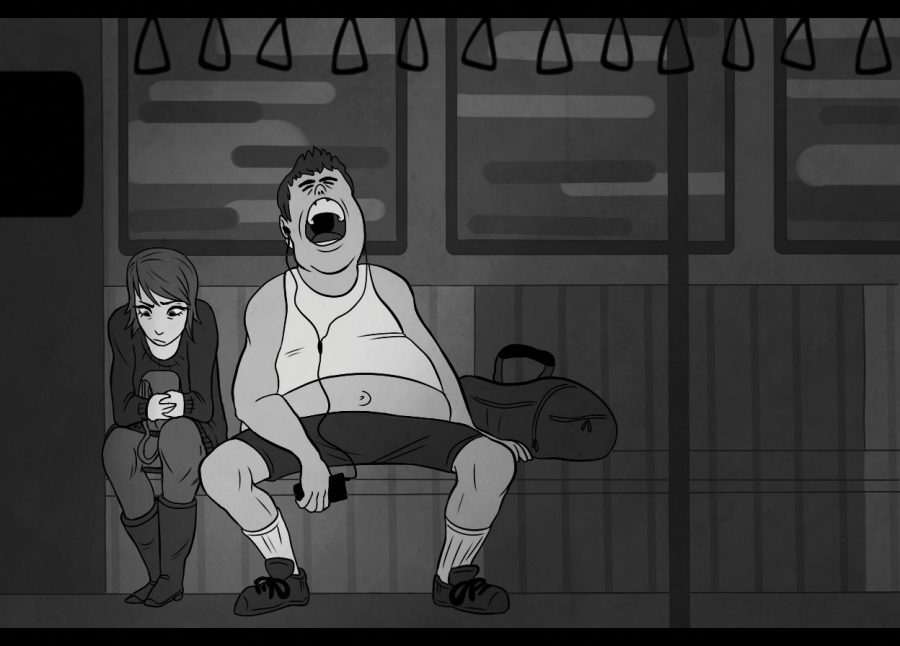[dropcap style=”simple” size=”5″]I[/dropcap]n debate, there are certain unspoken rules regarding one’s behavior during a round: shake hands before and after, wear appropriate clothing and, if you happen to be a female debating a male, be nice.
This is not your typical socially required politeness; what I am referring to is an almost sickening level of sweetness and deference that protects against any accusations of rudeness.
At debate camp this summer, I faced my roommate, Aurora, in the semifinal round of the tournament. Besides being one of the best debaters I’ve encountered, Aurora is unapologetically brash and commanding, which shows in her debates.
During the cross examination period of our round, she slammed me with question after question, cutting me off at every other syllable and generally doing her job as a debater. After the round was finished, we shook hands, and I congratulated her on being the amazing debater that she was.
Her next round was against one of our friends, a boy named Mario. From the start of the round, I could tell something was different. Aurora’s tone was more dulcet and jovial, and she made sure to sit with her legs modestly crossed, a complacent smile pasted on her face.
When cross examination arrived, I watched with disgust and resignation as Aurora asked questions in a cooing manner appropriate for a parent attempting to get a coddled child to eat their vegetables.
One of the fiercest debaters I’ve ever met had transformed from an unapologetic interrogator to a kindergarten teacher-like figure who unfailingly said “please” and “thank you” every five seconds; the only difference between her opponents was that the second was wearing a suit and tie.
It is these powerful yet inconspicuous details that define sexism in the 21st century. Denials of the imbalance in gender rights all fail to acknowledge an invisible discrimination that cannot be clearly outlined in statistics, though inequities on that front are certainly plentiful.
This is a doctor asking my friend, who had been shadowing him for a month, if she wanted to be a nurse. This is the “tsk” I once heard a mother direct toward a girl in a crop top, even after laughing good-naturedly at a boy stripping off his shirt and flexing his muscles during a RBHS assembly.
This is my seventh grade female guidance counselor suggesting I take the Family and Consumer Sciences class because “girls should learn to cook early, so they can provide for their husband and children.”
Every day, society teaches young girls that the only way the world will accept them is if they stay safely within the confines of glass boxes. When people tell me to go make them a sandwich, I am supposed to laugh and loosen up, because obviously they were just joking and sexism is over, right?
No.
Sexism is still very much alive. Its heart beats with every girl who is cat-called in the street for simply existing. It takes a breath at each instance a woman is made to feel ashamed of her sexuality. It laughs when we pretend it does not exist.
There is no reason whatsoever why idiotic expectations of how a woman must behave should continue to dictate my actions and how I am perceived by others.
As a woman, I do not have the responsibility to “act like a lady.” I do not have to cross my legs demurely because the sight of a female sitting in a typically male position offends someone else’s sensibilities. I will not be silent while ridiculous double standards hinder my ability to live life freely.
It is easy to unintentionally overlook this kind of sexism, as it has become so ingrained in our society. However, this is the precise reason why microaggressions are incredibly dangerous.
When placing different standards on human beings based on gender is so commonplace that we don’t even realize it is happening, society as a whole runs the risk of accepting the unacceptable as “normal.”
Even I have thought things in the past I am not proud of, have judged other women based on clothing or behavior that I considered “slutty.” Looking back, I realized that I would not have had the same reaction toward a man who dressed or acted in a similar manner. Nobody is immune from the pervasive nature of double standards and nobody can be completely free of prejudice.
What we can do is examine the way we react to certain situations, and attempt to be better. I challenge every one of us to take a look at our day-to-day life and try to recognize the casual sexism we perpetuate and receive in a vicious cycle of ignorance.
Though the glass ceiling may soon be a thing of the past because of the prominence of powerful women such as Sheryl Sandberg, Hillary Clinton and Marissa Mayer, the walls caging us in still stand unyielding.
.It is time for us to break free of societal constructs, recognize and eliminate microaggressions designed to condition us to accept everyday discrimination and redefine what it means to be a woman
By Jenna Liu
Art by Maddy Mueller
















































































